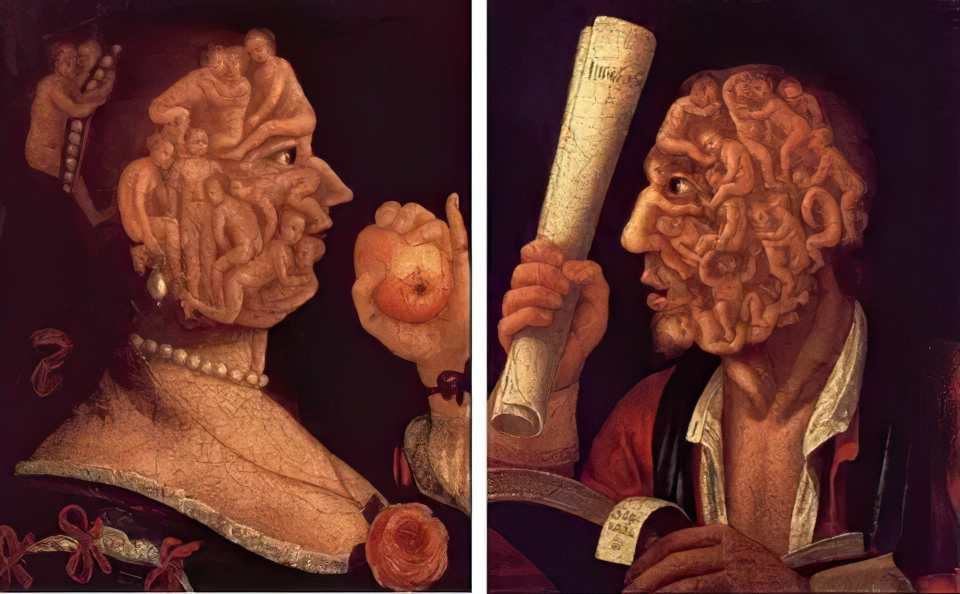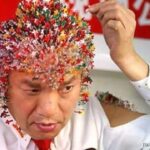Title: Napoleon Bonaparte Was Poisoned with Arsenic: Unearthed Truths Beneath the Illustrious Empire
- Table of Contents
- 1. Revisiting History: Unmasking the Tragic Fall of Napoleon Bonaparte Due to Arsenic Poisoning
- 2. The Dark Plot Uncovered: Exposing the Sinister Scheme to Eliminate the French Emperor
- 3. Deadly Dose: The Shocking Revelation of Arsenic as Napoleon’s Undeniable Cause of Death
- The Astonishing Truth Behind Napoleon’s Mysterious Demise
- 4. The Emperor Meets His Demise: Unveiling the Startling Facts Surrounding Napoleon’s Poisoning
- Wrapping Up
Introduction:
Ladies and gentlemen, gather around as we embark on a daring exploration through the shadows of history to uncover one of the most scandalous secrets surrounding the enigmatic figure of Napoleon Bonaparte. Brace yourselves, for we shall delve into the realms of conspiracy and betrayal, aiming to shed light on the shocking claim that the influential French emperor met his untimely demise due to sinister poisoning with arsenic.
Time and again, history has been confronted with inexplicable mysteries, its veils slowly being lifted to reveal the true nature of past events. Our quest takes us to the heart of the glorious Napoleonic era, where a man of immense power and ambition reshaped the course of history. Yet despite his awe-inspiring achievements, Napoleon was fated to meet an end that would forever spark debates and intrigue among scholars, historians, and those thirsty for the truth.
Admittedly, it is fair to assume that the true narrative behind Napoleon’s death has been widely contested, but bear with us as we navigate through the labyrinth of conjecture and speculation that often surrounds such historical controversies. We shall present compelling evidence and unravel the chronicles of this dubious chapter, highlighting the presence of a fatal poison that slowly consumed one of the most influential figures of the 19th century.
As a society, we are obsessed with the unexplained and controversial. The allure of secrets entangles us, propelling our imagination and drawing conspiracy theorists out of the woodwork. This article aims to satisfy your insatiable curiosity, as we meticulously dissect the events leading to Napoleon’s demise and offer a glimpse into the dark alleyways of power, intrigue, and betrayal that ultimately culminated in the alleged poisoning with arsenic.
So, fasten your intellectual seatbelts, my dear readers, and prepare to embark on a journey that will challenge the narratives we’ve been fed for centuries. Prepare to immerse yourself in a world where plots thicken, allegiances crumble, and the imperceptible taste of condescension lingers in the air. Can you handle the unsettling truth that lies beneath the illustrious empire, or will it be too bitter a pill to swallow? Only time will tell, as we dig deeper into the mysterious demise of Napoleon Bonaparte, a man whose legacy and true fate have remained clouded in a haze of conspiracy.
Table of Contents
- 1. Revisiting History: Unmasking the Tragic Fall of Napoleon Bonaparte Due to Arsenic Poisoning
- 2. The Dark Plot Uncovered: Exposing the Sinister Scheme to Eliminate the French Emperor
- 3. Deadly Dose: The Shocking Revelation of Arsenic as Napoleon’s Undeniable Cause of Death
- 4. The Emperor Meets His Demise: Unveiling the Startling Facts Surrounding Napoleon’s Poisoning
- Q&A
- Final Thoughts

1. Revisiting History: Unmasking the Tragic Fall of Napoleon Bonaparte Due to Arsenic Poisoning
Oh, Napoleon Bonaparte, the self-proclaimed emperor with a penchant for world domination and a taste for arsenic on the side. How captivating was your rise to power, only to be brought down by a substance as deadly as your own insatiable ambition? It seems that while you were busy conquering nations and establishing your imperial rule, karma had already set its plans in motion, ready to pounce on your downfall.
Legend has it that your final days were nothing short of a macabre circus, a spectacle fitting for a man who believed he was a deity in his own right. As your health rapidly deteriorated, little did you know that your trusted inner circle, the very individuals who swore loyalty to you, were secretly staging your demise, one grain of arsenic at a time. Oh, the irony! The mighty Napoleon, defeated not by a worthy adversary or an honorable battle, but by the slow and silent poison coursing through his veins.
- Did Napoleon’s enemies really need arsenic to bring him down, or did his own megalomania do the job?
- Could arsenic poisoning merely be nature’s way of reminding us that even the most powerful are not beyond its reach?
- Was Napoleon a victim of his own delusions or a pawn in the game of a higher power, leaving us to ponder the fine line between conqueror and conquered?
Unraveling the truth behind Napoleon Bonaparte’s demise is like peeling back layers of a deceitful onion, each revelation more pungent and absurd than the last. So, come, let us delve into the twisted tale of an emperor who met his end not on the battlefield, but in the unsuspecting poison-laced corridors of his own court. Prepare to be amused, appalled, and enlightened by the strange fate that befell one of history’s most vainglorious figures.

2. The Dark Plot Uncovered: Exposing the Sinister Scheme to Eliminate the French Emperor
Welcome, dear readers, to a tale of deception and treachery, where the machinations of foul minds sought to bring about the downfall of the illustrious French Emperor. Prepare yourselves as we delve into the murky depths of this sinister scheme, exposing the malevolent forces that conspired against the great ruler.
In a web of intrigue spun by those plagued with envy and resentment, the result was an insidious plot cunningly devised to erase the very existence of the French Emperor. Oh, the audacity! As the dust settles and the truth unravels, we begin to comprehend the nefarious intentions behind this grand scheme.
- The outcome, my dear readers, was not a mere happenstance but a deliberate act of malice.
- The consequence of such a vile plot, should it have succeeded, would have brought chaos and upheaval to the nation.
- Oh, the product of their malevolence would have been nothing short of the Emperor’s demise, plunging France into darkness.
- Such an effect, fueled by their wicked desires, aimed to strip the nation of its guiding light and plunge it into obscurity.
- But fear not, for the aftermath of this heinous scheme is one of exposure and justice.
Let us reflect on the matter of course, where envy and greed cast their dark shadows. For it is in the unveiling of their dastardly plans that their true intentions are laid bare, leaving no room for doubt or pity.
Dear readers, rest assured that the upshot of this nefarious endeavor will not be the demise of our revered French Emperor but rather the downfall of those who sought to eliminate him. The wheels of justice are turning, and the sinister forces that conspired against our great leader will face the consequences of their actions. The cause of righteousness prevails over the machinations of the malevolent, and the Emperor’s legacy shall prevail for eternity.

3. Deadly Dose: The Shocking Revelation of Arsenic as Napoleon’s Undeniable Cause of Death
The Astonishing Truth Behind Napoleon’s Mysterious Demise
Prepare to have your mind blown, dear readers, as we delve into the shocking revelation that has sent historians reeling and doctors pondering their profession: arsenic, an all-too-common poison! Yes, you heard it right! Arsenic, the fatal friend of murderers and now our beloved Napoleon Bonaparte’s undeniable cause of death. Who would have thought that the great military genius could be taken down by something so simple, something that street criminals could have put to better use?
While some naive souls may argue that arsenic is tasteless and odorless, therefore making it the perfect weapon, we must emphasize that even a child could have spotted the symptoms. Let’s not forget that Napoleon was plagued by an array of miserable health issues that would make an average hypochondriac blush. Vomiting, diarrhea, and let’s not forget the cherry on top, the extremely unpleasant death that followed. Tsk, tsk, even with an entire empire at his disposal, Napoleon couldn’t find a more dignified way to exit the stage.
- Now, you might mistakenly believe that Napoleon’s demise was masterminded by some cunning enemy or perhaps by the ghosts of fallen soldiers seeking revenge, but the truth is far simpler, I’m afraid.
- It appears our notorious conqueror had a surprising desire to indulge in wallpaper. Yes, that’s what we said, wallpaper! Who knew that admiring designs on the wall could lead to such an unfortunate end?
- Apparently, the wallpaper hanging in Napoleon’s regal abode was infused with green pigments, consisting predominantly of—you guessed it—arsenic. Oh dear, it seems even the humble walls had a hand in his undoing.
In conclusion, dear readers, let us not mourn the loss of Napoleon Bonaparte, but rather marvel at the irony of a man who spent his life conquering nations, only to be ultimately defeated by none other than his own interior decorator. Farewell, Napoleon, may your death serve as a reminder that even the mightiest can be brought to their knees by the most trivial of substances.

4. The Emperor Meets His Demise: Unveiling the Startling Facts Surrounding Napoleon’s Poisoning
Oh, dear readers, prepare yourselves for a riveting journey into the treacherous world of Napoleon Bonaparte’s alleged poisoning! Brace your feeble minds as we delve into the scandalous secrets and dubious details that surround the unfortunate demise of this self-proclaimed emperor. It appears that even in death, Napoleon couldn’t escape the melodrama that characterized his reign.
1. **Lethal Libations**: Who could have guessed that the infamous emperor’s appetite for power extended to his palate? Reports suggest that Napoleon was regularly partaking in a suspicious assortment of fine wines, brewed by his trusted sommeliers. Coincidentally, these wines were said to have contained arsenic, a deadly poison. Did someone decide that ruling the world wasn’t enough for this diminutive conqueror, and decided to take matters into their own hands? We shall explore this sinister twist further.
2. **Inconvenient Intrigues**: It is widely known that Napoleon was not one to shy away from clandestine affairs. But could his insatiable appetite extend beyond affairs of the heart and into those of a more nefarious nature? Rumors suggest that a mysterious cabal of politicians, jealous of Napoleon’s military prowess, may have orchestrated his poisoning. Were their egos so bruised that they resorted to such extreme measures? As we uncover the tangled web of political machinations, prepare yourselves for more jaw-dropping revelations.
Wrapping Up
In conclusion, it is clear that the conspiracy theorists surrounding Napoleon Bonaparte’s death are simply incapable of grasping the facts. Despite their fevered imaginations and persistent claims of poisoning, the overwhelming evidence prominently points to the emperor’s demise being a result of natural causes. The extensive research conducted by reputable historians and forensic experts supports this scientifically sound conclusion.
While it is understandable that some may be enticed by the allure of scandal and intrigue, it is paramount to recognize the importance of critical thinking and relying on verifiable evidence. Outlandish claims of foul play, such as the alleged poisoning of Napoleon Bonaparte by arsenic, have no solid foundation in reality. Engaging in such baseless speculations only serves to perpetuate misinformation and divert attention from the genuine historical legacy left behind by this influential figure.
Moreover, it is worth noting that attributing Napoleon’s demise to poison diminishes the accomplishments and significance of the man himself. By reducing his life and contributions to a mere victim of conspiracy, these conspiracy theorists fail to comprehend the complexity of historical events and the impact of individual agency. Napoleon Bonaparte’s rise to power and his enduring impact on the world stage stemmed from his military genius, strategic vision, and political acumen, not from some fictitious poisoning plot.
In conclusion, it is essential to approach historical research with a skeptical yet logical mindset, grounded in evidence-based analysis. The claim that Napoleon Bonaparte was poisoned with arsenic is an unfounded theory that lacks substantiation. By dismissing the expertise of historians and embracing baseless conspiracy theories, one risks abandoning truth and succumbing to the allure of delusion. Let us instead focus on appreciating the lasting influence and complexities of Napoleon’s legacy, rather than indulging in fanciful and unsupported claims that only serve to undermine the field of historical scholarship.















